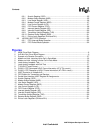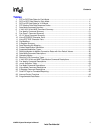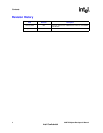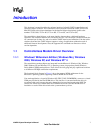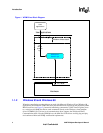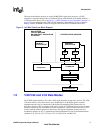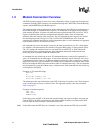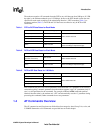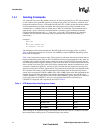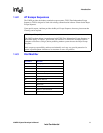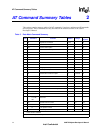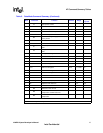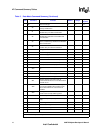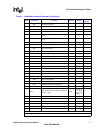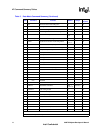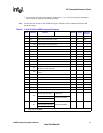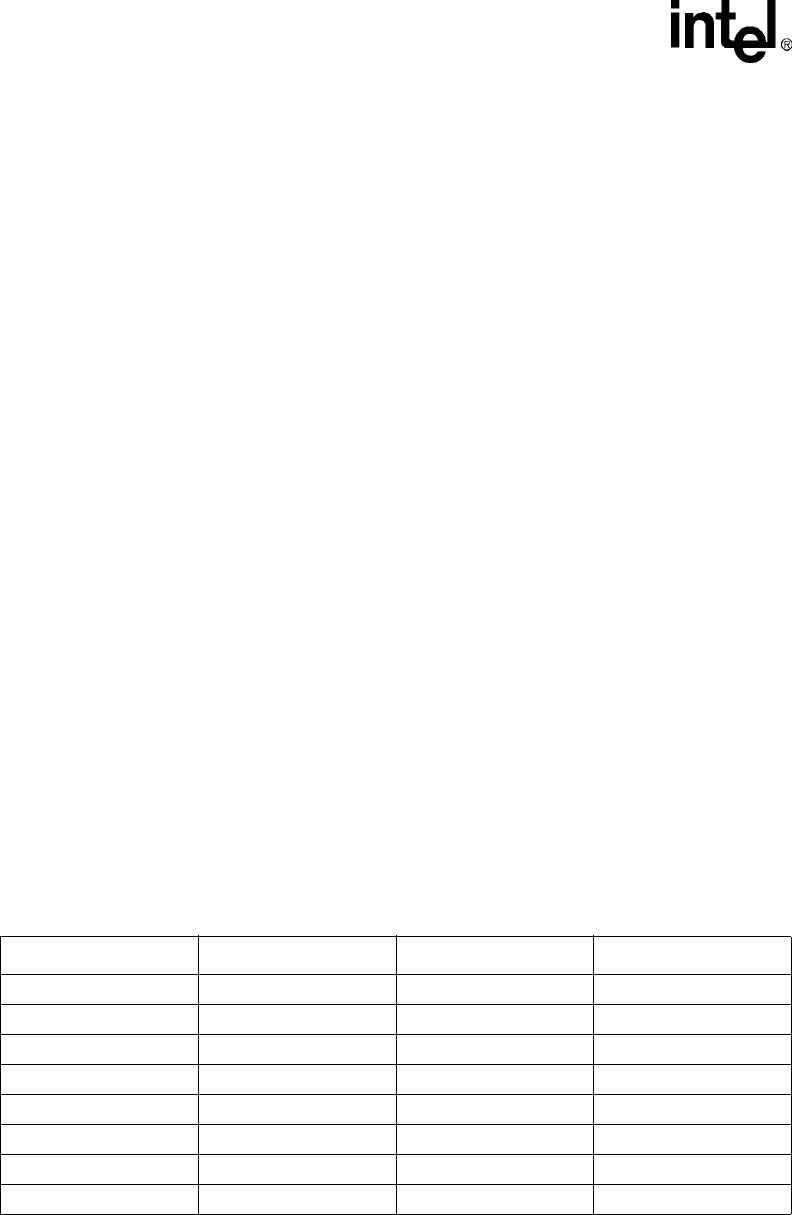
12 536EX Chipset Developer’s Manual
Intel Confidential
Introduction
1.4.1 Sending Commands
All command lines sent to the modem, except for A/, must be preceded by an ‘AT ’ and terminated
by the contents of S-register S3 (typically a carriage return <CR>). AT stands for ‘attention’ and
prompts the modem to receive a command line from the DTE. A <CR> informs the modem that the
entire command string has been transmitted and to begin processing all the commands in the
command line. A command line can include one or more AT commands. The commands can be
separated by a space, if desired, but no punctuation is needed except for extended commands.
Extended commands begin with a ‘+’, such as fax, voice, and V.250 commands. In a multiple-
command line, extended AT commands must be separated from following commands by a
semicolon(;).
Examples:
ATS1?<CR>
A/
AT &F &D2 +FCLASS=?<CR>
AT +FCLASS=0; S0=1<CR>
The modem provides status information to the DTE in the form of response codes, as listed in
Table 4. Response codes take two (2) forms, text (ATV1) or numeric (ATV0), depending on how
the modem is configured.
Table 4 lists basic format response codes. These response codes have numeric equivalents that are
displayed depending on the value of ATV. In addition to the basic format response codes, there are
extended syntax result codes that indicate connection status of the DCE-DCE connection that are
not effected by numeric response reporting. These result codes have no numeric equivalent and are
always issued in text form. The result codes display modem mode, transmit connection rate, error
correction, compression, DTE rate, and receive rate. Note that the final connection message only
indicates receive rate if ATXn is greater than 0. The format for the result codes code depends on the
Wn command. The setting of the Wn command will determine which of the following connect
results codes are displayed (+MCR, +MRR, +ER, +DR, +ILRR). Refer to the Wn command for the
detailed description of the command. Note that the supported carrier modes for +MCR can be
found in parameter 1 of +MS. The last result code is the CONNECT <text>, where text is the DCE
receive rate. Note, the CONNECT <text> is not displayed when ATX0 is indicated, just
CONNECT is displayed and is reported by the rules in Table 4.
After sending an AT command string to the modem, the DTE must wait for a response code from
the modem before sending a new AT command string to the modem.
Table 4. DTE-Modem Data Rate Response Codes
Numeric Text Numeric Text
0 OK 9 DELAYED CALL
1 CONNECT 10 BLACKLISTED
2RING11+FCERROR
3 NO CARRIER 12 RINGBACK
4ERROR13CPON=
6 NO DIALTONE 14 CPOF=
7 BUSY 15 DRON=
8 NO ANSWER 16 DROF=



